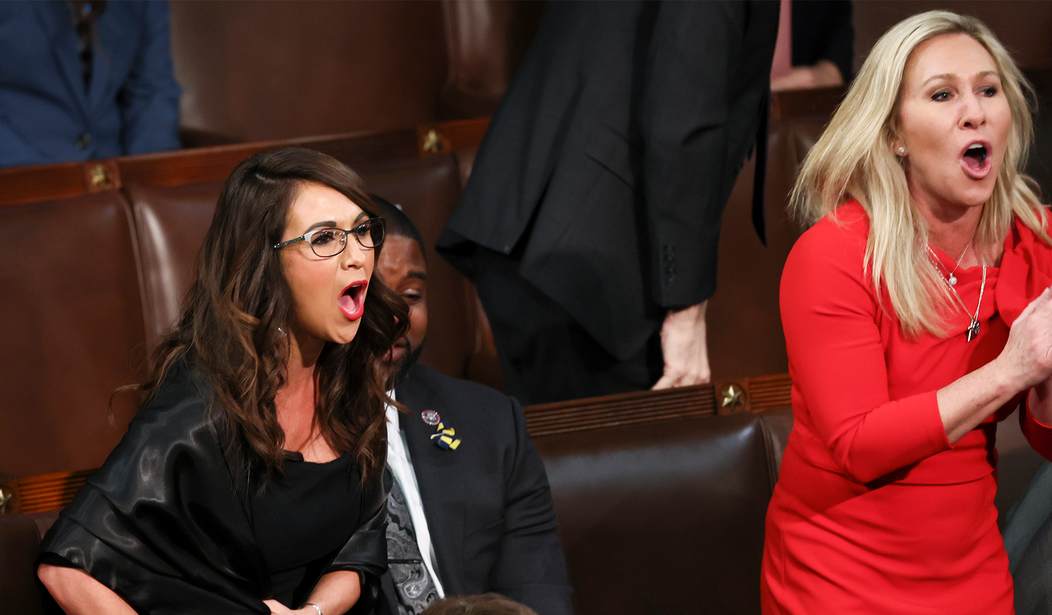As of right now, the race in Colorado’s Third Congressional District remains too close to call, with Democrat Adam Frisch leading Republican incumbent Lauren Boebert 50.6% to 49.4% with an estimated 90% of the vote already counted. According to the NY Times analysis of the remaining vote, Boebert should eke out a win, but their current projections show a victory of less than one percentage point, and a defeat is still a real possibility.
Regardless of the how the race is ultimately decided, it wasn’t supposed to be this close, even in the blue state of Colorado. The district Boebert represents is considered solidly Republican, and her fellow GOP representatives in the state appear to have won re-election by roughly the same margin that they did in 2020. Boebert, on the other hand, has seen her share of the vote slightly decline this time around, while her Democrat opponent is performing much better than her opposition in 2020.
Part of the reason for that is the campaign that Frish ran. Instead of promoting himself as the liberal opposition to the conservative congresswoman, the Democrat downplayed his party affiliation and described himself as a “patriotic mainstream businessman” and courted votes from across the political spectrum.
“There’s a lot of views, regardless of Republicans or Democrats in rural Colorado and the Western Slope, that it’s a very Denver-centric conversation going on with the state,” Frisch said of his tour. “The Democratic Party is very urban-centric overall… I think this district has a lot more in common with rural Florida and rural Michigan than we do down in Denver.”
The candidate said he and constituents want the “circus” to stop — and he’s the one to get it done.
Frisch was recently endorsed by Senator Don Coram (Montrose), who ran against Boebert in the primary election earlier this year, as well as former Republican Colorado House Speaker Russ George.
Frisch didn’t spend a lot of time talking about his desire to ban “assault weapons” or pass new federal gun control laws. In fact, he didn’t really bring up gun control at all. I had to do some digging to find any comments about gun control issues, but in one June interview conducted before the Democratic primary Frisch praised the gun control group Everytown for Gun Safety while studiously avoiding giving an answer about support for things like a ban on so-called assault weapons.
If Frisch wins, there’s no reason to believe he’s going to be anything other than a reliable vote for gun control, even though it wasn’t a part of his campaign pitch (his website, for instance, doesn’t mention gun control or “gun safety” as one of his issues). Gun control activists will be quick to take credit if Boebert does end up losing, but it looks to me that her struggles have more to do with some of her other positions (and her flamboyant way of expressing them) than her support for the Second Amendment.
The more reserved Frisch slams what he terms Boebert’s “angertainment” approach to politics.
Boebert has drawn attention and sparked outrage on the left and the right since she upset five-term U.S. Rep. Scott Tipton last cycle in the Republican primary before going on to win election by 6 points in the GOP-leaning district.
Following redistricting, the 3rd CD’s partisan make-up shifted slightly to the right, favoring Republican candidates by about 9 percentage points.
The district covers 27 counties on the Western Slope and across Southern Colorado, including Pueblo County and the San Luis Valley.
Frisch, who calls himself a centrist and has taken a handful of positions at odds with national Democrats on energy and fiscal matters, emerged from a three-way primary with the narrowest of wins, prevailing by fewer than 300 votes.
Boebert, meanwhile, fended off a primary challenge from state Sen. Don Coram, a Montrose rancher, by a two-to-one margin.
Last month, Coram endorsed Frisch, drawing a censure from his local county Republican Party.
Frisch maintains that the Republicans and unaffiliated voters who voted against Boebert in the primary will add up to what could be this cycle’s biggest surprise in Colorado, though Boebert and her campaign contends district residents are more than happy with the job she’s doing.
I think another drag on Boebert this year were her tight ties to Donald Trump. As we’ve seen in states like Ohio, New Hampshire, and Georgia, those candidates most associated with the former president didn’t fare as well as those who are seen as outside Trump’s orbit. Combine all of those factors and add in the the fact that Colorado is becoming a deeper shade of blue, and a race that shouldn’t have been close is now a nail-biter.








